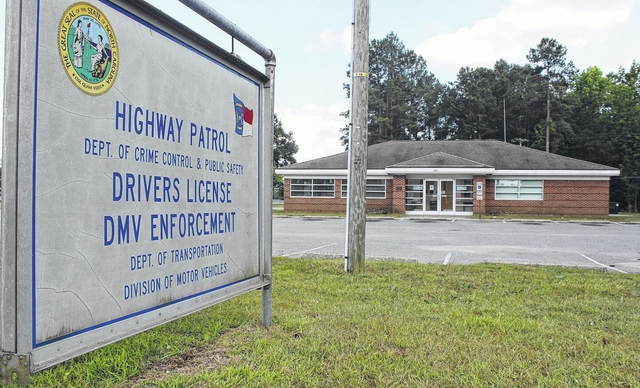





LAURINBURG — A series of tests commissioned by the N.C. Geological Survey to determine whether or not natural gas is contained in the Cumberland-Marlboro Basin could bring exploratory drilling to Laurinburg as early as next week.
The North Carolina Department of Environment and Natural Resources awarded a $145,000 contract last week to Patterson Exploration Services, Inc. to extract underground core samples at the N.C. Highway Patrol station in Laurinburg, a N.C. DOT maintenance yard in Raeford, and the N.C. Wildlife Commission fish hatchery in Fayetteville.
The sampling process, which will take two to three days at each site, began in Raeford on Wednesday. According to DENR spokesperson Jamie Kritzer, crews will proceed to Fayetteville and then to the Laurinburg site.
The Cumberland-Marlboro Basin encompasses parts of Scotland, Robeson, Hoke, Cumberland, Sampson, and Wayne counties and Marlboro County, South Carolina.
Crews will drill beneath the coastal plain, to a depth of 200-450 feet, to extract core samples 30 feet long and several inches in diameter. Those samples will then be tested for Triassic rock, which contains organic-rich shale formed 230 million years ago.
“They’re going vertically down into the earth and they are extracting these rock cores and they’re pulling those back out, then there will need to be analysis of that to determine the presence of oil and natural gas,” Kritzer said.
Even if the testing does indicate the presence of oil and natural gas, the practice of hydraulic fracturing — “fracking” — is a long way from being implemented in Scotland County, as further testing will be necessary to determine the extent of oil and natural gas contained beneath the surface.
“The goal for the NC Geological Survey has been, since it was created, been to assess the mineral and rock geologic resources that are in North Carolina, so it’s their job to go out and determine what’s there,” Kritzer said.
By drilling, and then splintering shale deposits by way of an intense infusion of chemically infused water, fracking releases natural gas held deep underground. Opponents of the practice cite concerns about the effect of those chemicals on the groundwater supply, as well as the rights of landowners who may see the resources beneath their properties depleted by nearby fracking.
Earlier this month, a Wake County Superior Court judge halted further approval of drilling units for fracking until the state Supreme Court decides a separate case regarding how state panels, including the Mining and Energy Commission, are formed.
DENR also prioritized sampling at a fourth site, the former Scotland County Correctional Center in Wagram, but did not fund it due to the cost of obtaining samples at a Stokes County site in the Dan River Basin.
“In the Dan River Basin, there had been some data that we gathered in 1981 and they did some core drilling back then and they determined that there did appear to be oil and natural gas resources,” Kritzer said.
“The Cumberland-Marlboro Basin we know less about. We’re trying to determine if there is the existence of something known as Triassic rock. If there is no Triassic rock, then there is no existence of oil and natural gas.”
Currently, there is no timeline for testing the samples obtained in the region. But the results will be reported to the N.C. General Assembly, which appropriated funds for the exploratory sampling.
Mary Katherine Murphy can be reached at 910-506-3169.

